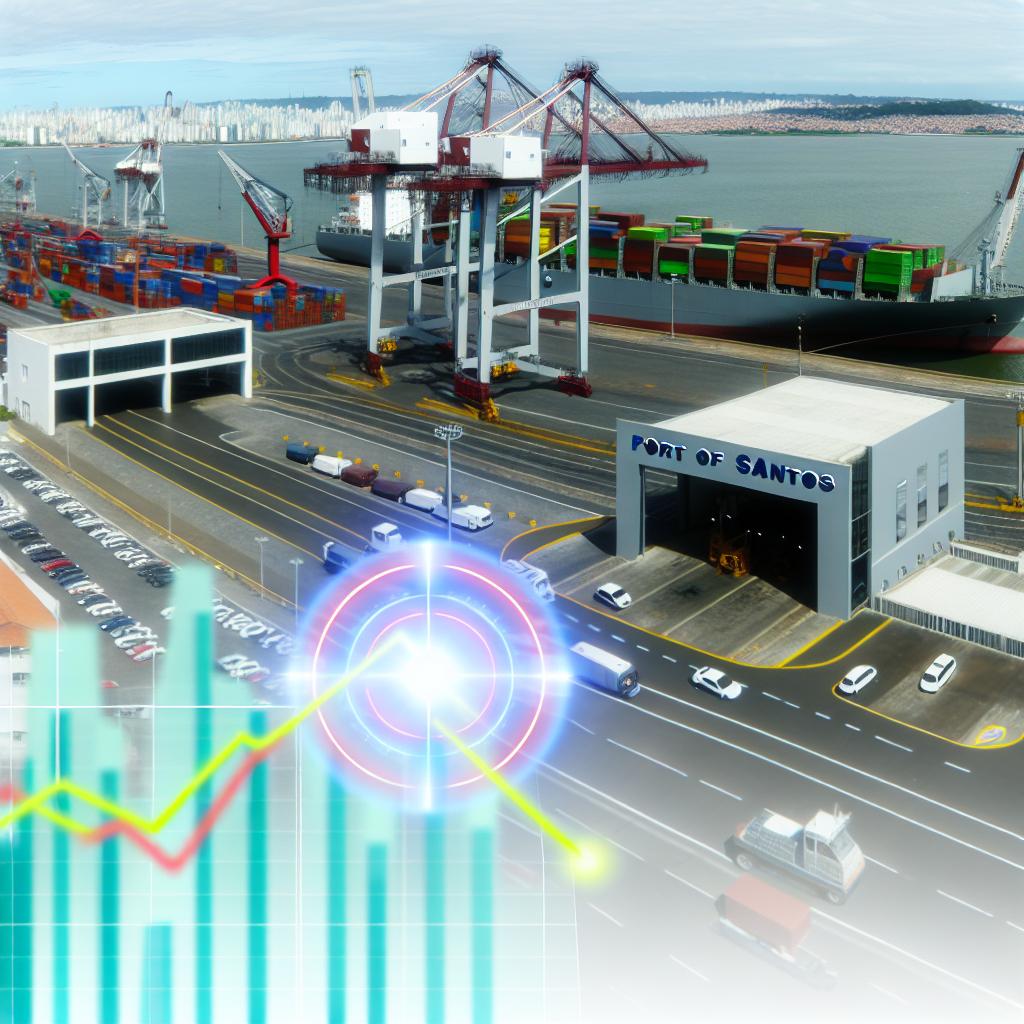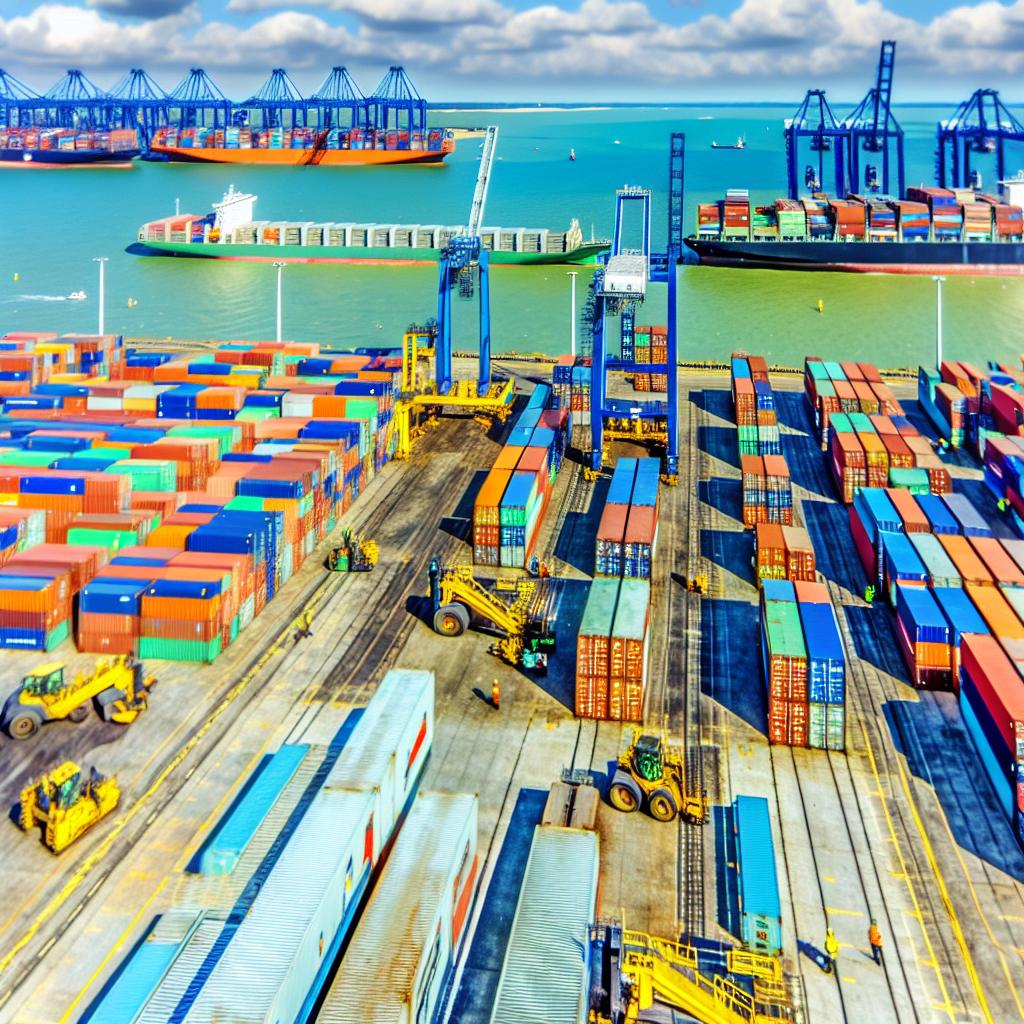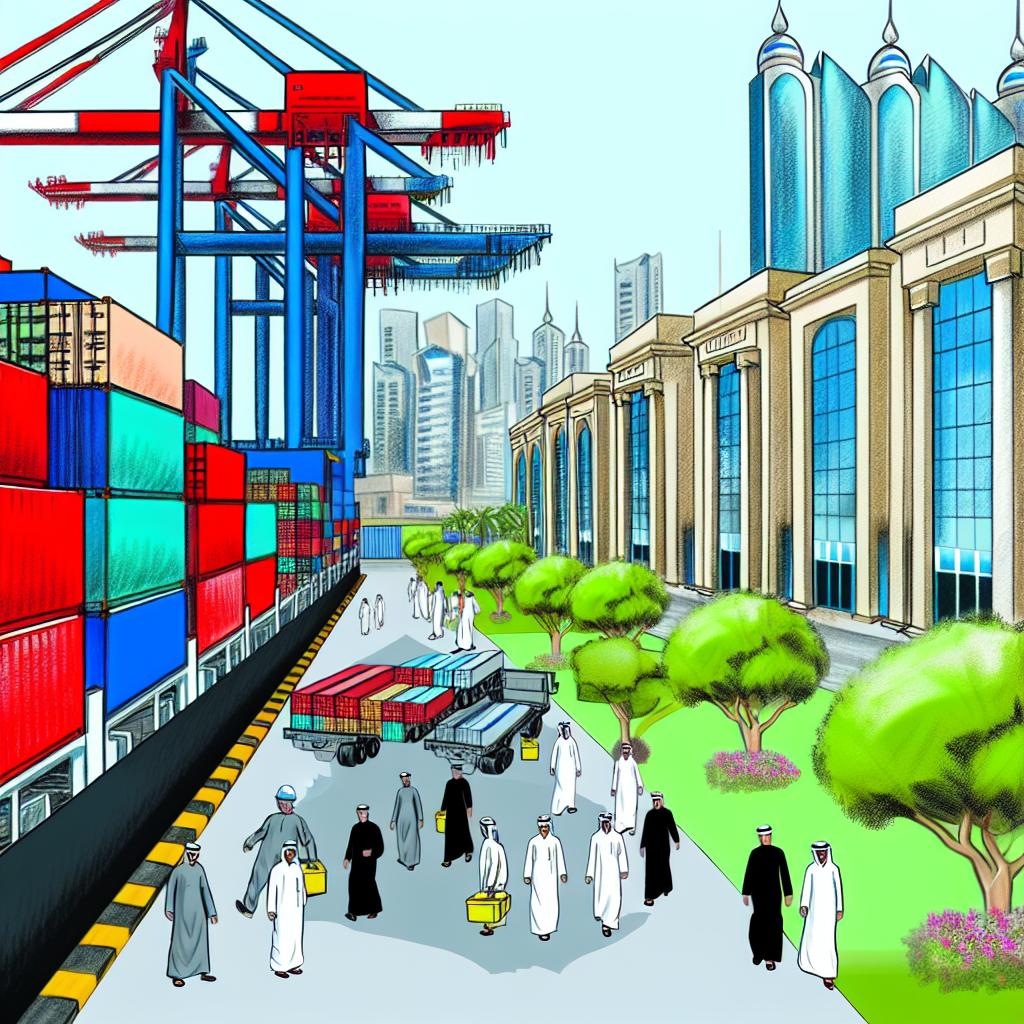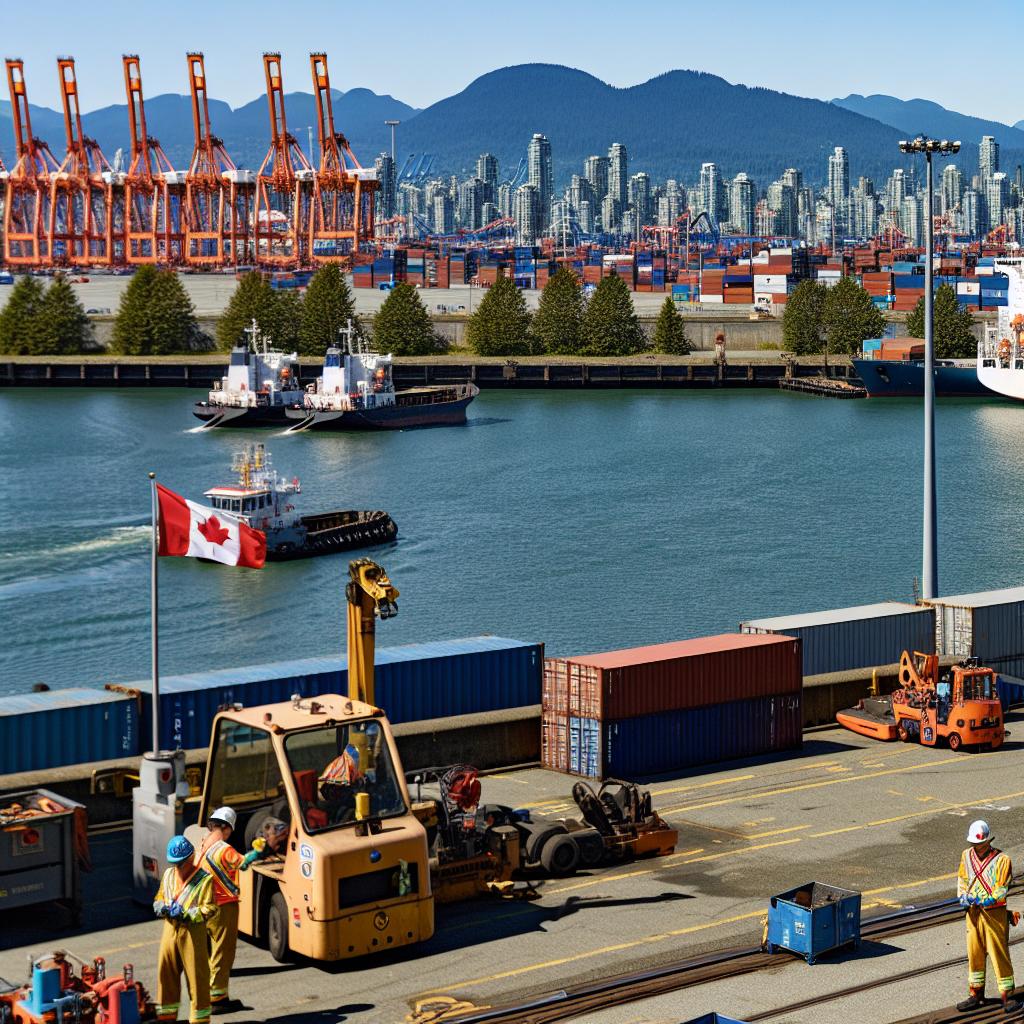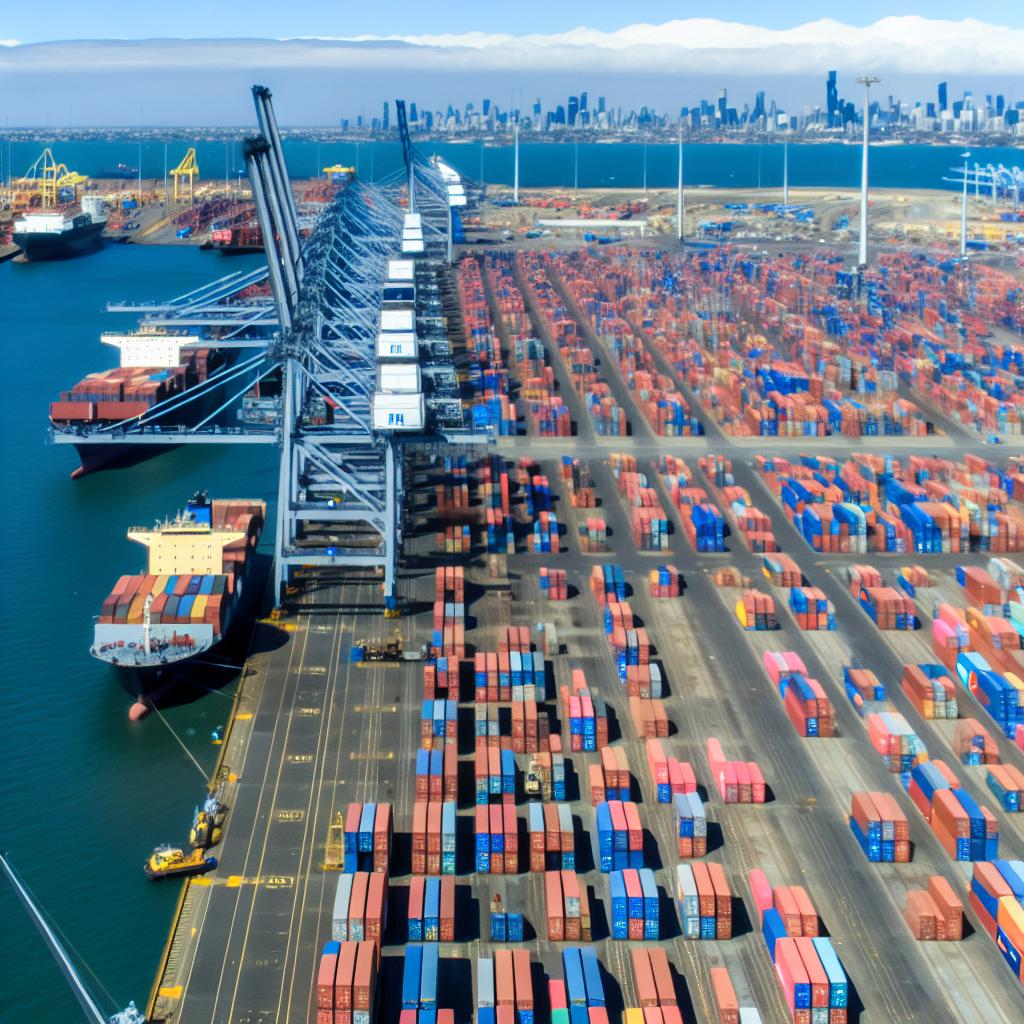The Importance of the Port of Santos
The Port of Santos, situated in the state of São Paulo, stands as a crucial economic pillar for Brazil. Its status as the largest port in Latin America underscores its importance within the regional and global logistics frameworks. This critical role has positioned the port as an indispensable component in Brazil’s journey towards economic stability and growth.
Historical Context
The Port of Santos commenced its operations in 1892 and has since been a central actor in facilitating the international trade activities of Brazil. Originally, its significance was derived from its role in the exportation of coffee, which was Brazil’s predominant export during the early part of the 20th century. Over the years, the port has undergone various transformations to accommodate shifts in global commerce demands. It has continually embraced technological progressions, allowing it to keep pace with the dynamic nature of international trade.
The Evolution of Trade Networks
The changes in global trade practices imposed the necessity for the Port of Santos to enhance its capabilities. Initially focused on agricultural exports like coffee, the port gradually diversified its operations to include a wider array of commodities. This transition was pivotal in maintaining its relevance amidst evolving economic landscapes. As global trade networks became increasingly intricate, the port adapted by expanding its facilities and incorporating modern technologies that allowed it to handle diverse cargo types efficiently.
Geographical Advantage
The strategic placement of the Port of Santos significantly boosts its operational efficacy. Nestled close to São Paulo, Brazil’s leading financial and industrial center, the port leverages its proximity to optimize the movement of goods. This advantageous position allows for seamless connectivity between the port and the interior regions of Brazil.
Infrastructure and Connectivity
To facilitate efficient transportation, the port is linked to an extensive network of railways and highways. This infrastructure ensures that goods can be transported rapidly and cost-effectively, enhancing the port’s capability to manage substantial cargo volumes. The interplay between these transportation channels and the port’s operations is vital for supporting Brazil’s trade economy, making it a linchpin in the regional logistics network.
Economic Contributions
The Port of Santos is integrally connected to Brazil’s economic framework through its handling of a substantial portion of the country’s import and export activities. Commodities like soybeans, sugar, corn, and petroleum products pass through the port, representing a significant portion of Brazil’s trade portfolio. The revenue generated from these exports bolsters Brazil’s trade balance, reflecting the port’s critical economic role.
Employment and Allied Sectors
The port’s operations not only contribute to trade but also create significant employment opportunities. Jobs are generated directly within port activities and extend to auxiliary sectors such as logistics, manufacturing, and services. This employment ripple effect stabilizes the regional economy and fosters growth, emphasizing the port’s influence beyond mere trade.
Regional Economic Impact
The economic contributions of the Port of Santos reverberate throughout the region. As a central hub for commerce, it stimulates economic activities across a spectrum of industries. The logistics and transportation sectors witness enormous benefits as the port serves as a critical node for the import and export of goods. Moreover, the economic activity port operations generate support local businesses and contribute to economic resilience.
Efficiency and Modernization
To retain its competitive edge, the Port of Santos invests in modernization efforts continuously. These investments encompass infrastructure improvements, advancements in cargo-handling technologies, and streamlining customs processes. Recent expansions of container terminals underscore these efforts by boosting the port’s cargo handling capabilities.
Technological Innovations
Implementation of technological innovations is paramount to the port’s productivity. Automated systems have been introduced to enhance operational efficiency and cargo throughput. Such measures are essential for accommodating increased cargo volumes and minimizing vessel turnaround times, ensuring the port’s standing as a leader in global trade infrastructure.
Environmental Considerations
With growing awareness of environmental impact, the Port of Santos has placed significant emphasis on sustainable practices. Advancements in environmental management are aimed at aligning port operations with ecological standards to minimize adverse effects on the environment.
Sustainable Practices
Efforts to curtail environmental impact encompass better waste management protocols and pollution control. Additionally, initiatives are being implemented to decrease the carbon footprint associated with maritime operations. These steps signal the port’s commitment to responsible environmental stewardship, further cementing its role in promoting sustainable development in Brazil.
Challenges and Future Prospects
While the Port of Santos has achieved numerous successes, several challenges linger. Congestion, regulatory hurdles, and periodic strikes are some issues that necessitate effective responses to preserve the port’s pivotal contributions to Brazil’s economy.
Strategies for Future Growth
Strategic planning and investments are integral to overcoming these challenges. By enhancing the logistical infrastructure, the port can alleviate existing bottlenecks and elevate operational efficiency. Additionally, fostering cooperation between government entities and private stakeholders can facilitate a supportive environment for continuous development.
Integration into the Global Market
The future prospects of the Port of Santos are intertwined with Brazil’s ambition to deepen its integration into the global market. Sustained efforts in modernization and efficiency are crucial in ensuring the port remains competitive on an international scale. By responding proactively to evolving global trade dynamics, the Port of Santos can continue to drive economic growth and solidify its position as a cornerstone of Brazil’s economic infrastructure.
In conclusion, the Port of Santos stands out as a fundamental component of Brazil’s economic architecture. Its continued commitment to modernization, efficiency enhancements, and environmental sustainability ensures it remains a pivotal player in global trade. Through addressing prevailing challenges and leveraging its strategic advantages, the port will maintain its critical role in propelling Brazil forward in the global economic arena.
